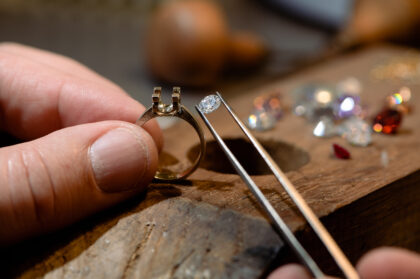What do we do with broken things? It seems like a lot of our impulse as a society is to discard things that are broken. Once an item is broken, it becomes less useful. We might even say broken things are useless. We throw it away. Maybe we buy a replacement.
Sometimes, though, a thing matters enough to us that we try to fix it. We don’t just throw it away, because we still value it. We have hope that it can be repaired. Maybe we can repair it ourselves. Maybe we have to get some special tools to repair it well. We might even have to take it to a specialist to fix it for us. In the end, we hope that the broken thing will be restored to functionality.
The way we treat our relationships and communities isn’t all that different from the way we treat other stuff in our lives. If something breaks in a relationship, our first impulse might be to throw it away. We can always replace that relationship with a shiny new one. We can always find another group of people if something has been broken in the way we connect with a community.
There may be some truth in that approach. And yet, underlying our values as Unitarian Universalists is the affirmation that human beings are not disposable. Our relationships matter. Our sense of connection and interdependence is sacred. We can’t throw away our sense of connection and interdependence without experiencing some internal conflict.
So, our human relationships, as individuals and as communities, are like those precious things that we want to hold onto, even when something has become broken. Our values direct us to seek repair and restoration, so that our relationships are recognized as sacred. Repair isn’t always easy, so we’re going to take a deeper dive in the month of November to explore the holiness of repair work.
We’ll begin this Sunday with acknowledging the painfulness of staying in a space of rupture. And we’ll explore the need for embracing the work of repair through a story. Maybe it’s a story some of you know. Maybe it’s a story we can imagine differently.
On November 10, we’ll expand our sense of repair to the concept of tikkun olam, “repairing the world.” This concept is at the heart of the Jewish observance of Yom Kippur, and it holds hope as the foundation for our spiritual calling. If repairing the world feels like a bit too much to take on, our shared meal after the service will remind us that we don’t engage in this work alone.
In a dynamic worship time on November 17, we’ll consider the spiritual depths of what repair can mean. So many of us know too well what ruptured connections feel like. And yet, working toward restoration seems undesirable. Too hard. Too painful. So, we live with a different kind of pain. What does a commitment to repair offer us in terms of spiritual wholeness?
Finally, our Bread Ceremony on November 24 will be a special time of renewal for our congregational relationships. We may have some things to repair with one another. By this point, we hope that rupture and repair is normalized as a way human relationships flow. In the sharing of bread with one another, we have an opportunity to soften into the safety of a community that embraces repair as a common practice.
That is our hope for the month, at least. More next week about a special, visceral way for us to hold the beauty of rupture and repair as a community.
Share this post:
